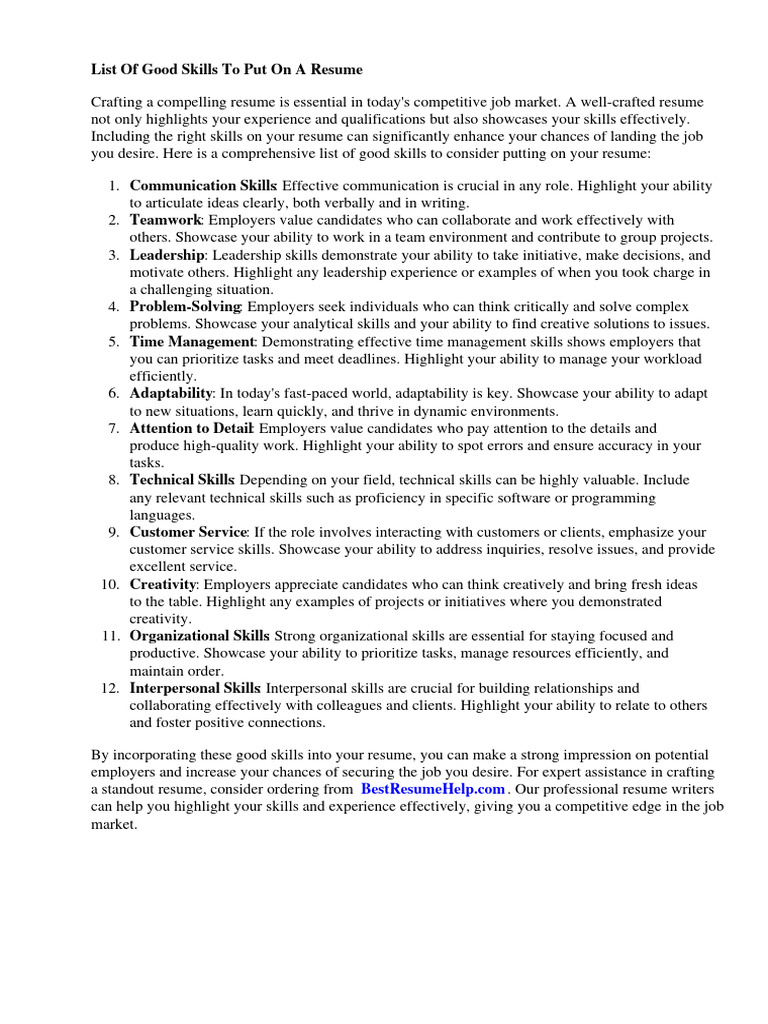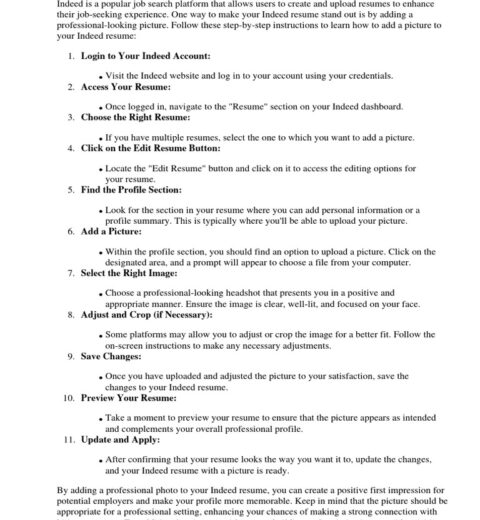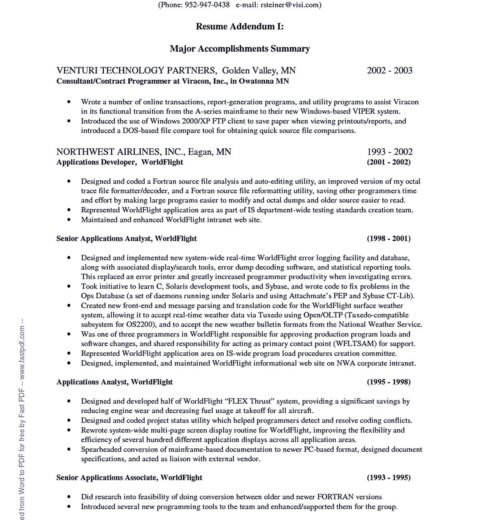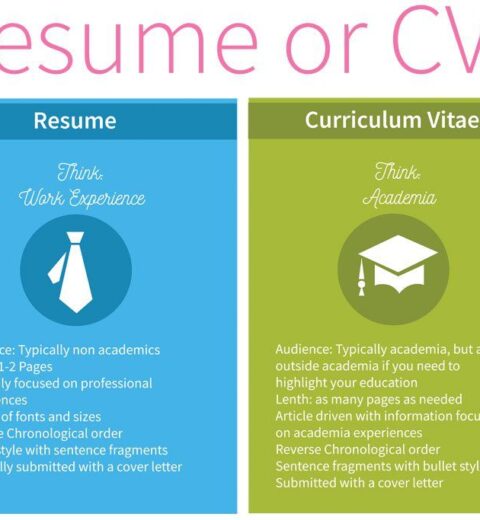Crafting an impactful resume is essential for job seekers in a competitive employment landscape. A resume not only presents one’s professional history but also showcases the skills that set a candidate apart from their peers. This article delves into the top 20 skills that can be powerfully presented on a resume to leave a lasting impression.
1. **Communication Skills**: The ability to convey information effectively is paramount in nearly every job. Strong communication involves both verbal and written forms, enabling individuals to articulate ideas or conditions clearly and concisely, fostering collaboration among team members.
2. **Leadership**: Exhibiting leadership skills showcases a candidate’s capability to motivate and guide a team. This skill is invaluable for managerial roles but is also applicable to positions where initiative and direction are necessary, regardless of the formal title.
3. **Problem-Solving**: Employers value candidates who can navigate challenges with analytical thinking. Problem-solving skills encompass the capacity to identify issues, analyze potential solutions, and implement effective strategies to overcome obstacles.
4. **Adaptability**: In a rapidly changing work environment, adaptability is key. Candidates who can adjust to new situations and modify their approach to challenges demonstrate resilience and flexibility, both of which are attractive qualities in potential hires.
5. **Technical Proficiency**: As technology continues to advance, a solid understanding of relevant software and tools can boost a candidate’s attractiveness. Proficiency in industry-specific technology reflects a commitment to continuous learning and professional development.
6. **Team Collaboration**: The ability to work effectively with others is crucial in any organization. Illustrating a history of successful collaboration indicates that a candidate values others’ input and works harmoniously towards shared objectives.
7. **Time Management**: Efficiently managing one’s time is essential in both high-pressure and routine work environments. This skill demonstrates an individual’s ability to prioritize tasks and meet deadlines without compromising quality.
8. **Critical Thinking**: Critical thinking refers to the objective analysis and evaluation of an issue to form a judgment. Candidates who exhibit this skill are equipped to assess situations and make informed decisions, positively influencing organizational outcomes.
9. **Creativity**: In an ever-evolving market, creativity can be a differentiating factor. This skill allows individuals to come up with innovative ideas and solutions that can propel projects forward and contribute to the organization’s competitive edge.
10. **Networking Abilities**: Building connections is integral in many fields. Demonstrating effective networking skills shows a candidate’s proficiency in establishing professional relationships that can lead to collaborative opportunities and advancement.
11. **Emotional Intelligence**: The ability to understand and manage one’s own emotions, as well as empathize with others, is increasingly important in the workplace. This skill helps maintain interpersonal relationships and fosters a positive working environment.
12. **Project Management**: Especially in roles that require oversight of projects, indicating strong project management skills can enhance a resume. This includes the ability to plan, execute, and lead projects successfully, managing resources and timelines efficiently.
13. **Conflict Resolution**: The ability to handle conflicts tactfully is a valuable skill. Individuals who can mediate disputes and negotiate solutions often contribute to a healthier workplace atmosphere, which is beneficial for team dynamics.
14. **Sales and Marketing Skills**: For roles in business development or customer relations, highlighting relevant sales and marketing expertise is beneficial. Understanding market trends and consumer behavior can significantly enhance a company’s outreach and revenue generation.
15. **Data Analysis**: In an age dominated by data, possessing the ability to analyze and interpret data can set candidates apart. This skill helps in making informed decisions based on quantitative insights, a necessity in many sectors.
16. **Customer Service Orientation**: Exemplifying an understanding of customer needs and the proficiency to meet those needs can be paramount, especially in customer-centric roles. This skill emphasizes a commitment to enhancing customer satisfaction and loyalty.
17. **Cultural Awareness**: In an increasingly globalized world, cultural awareness fosters inclusivity and diversity in the workplace. Individuals who possess this skill can navigate multicultural environments and appreciate diverse perspectives, which is invaluable in team settings.
18. **Technical Writing**: For roles that require documentation, the ability to produce clear and user-focused technical content is crucial. This skill reflects the capability to articulate complex information in a user-friendly manner, essential in fields like IT or engineering.
19. **Financial Acumen**: Understanding financial principles and demonstrating budget management skills are essential in various roles. Candidates proficient in financial analysis can contribute to strategic planning and sustainability within an organization.
20. **Social Media Proficiency**: With the rise of digital marketing, showcasing skills in social media management can be advantageous. Many companies seek individuals who can handle their online presence effectively, drawing on various platforms to engage audiences.
In conclusion, highlighting these top 20 skills on a resume can significantly enhance a candidate’s appeal to potential employers. A well-balanced mix of soft skills—such as communication and adaptability—and hard skills—like technical proficiency and data analysis—will present a well-rounded applicant capable of contributing to organizational success. Tailoring the resume to emphasize these skills not only demonstrates alignment with the job description but also establishes the candidate’s potential value to the company. Balancing oneself between these capabilities enables job seekers to position themselves effectively in a crowded job market, ultimately leading to increased opportunities and career advancement.




